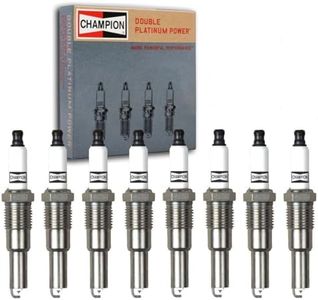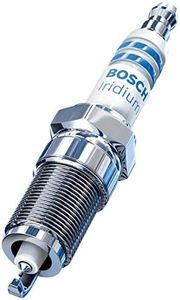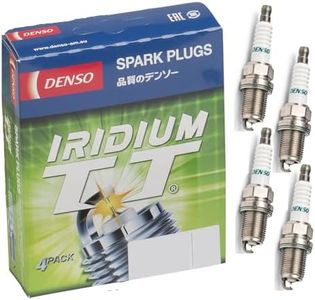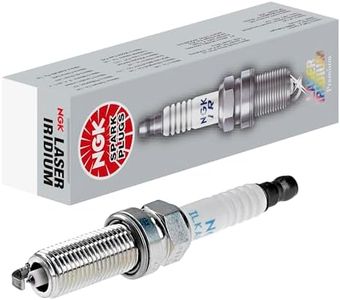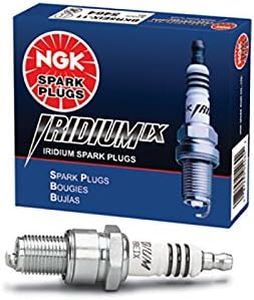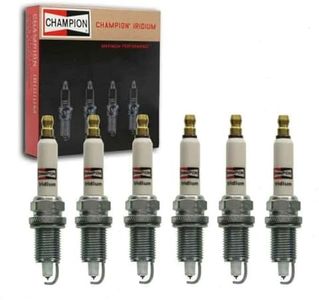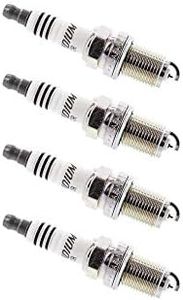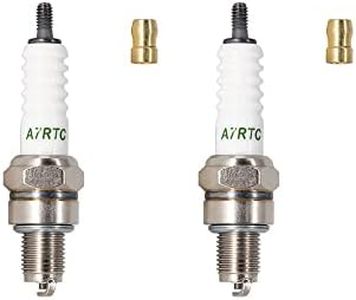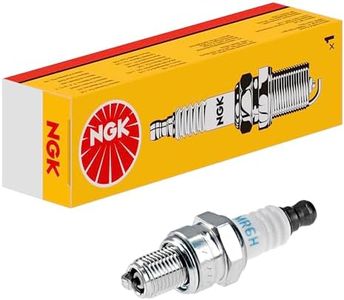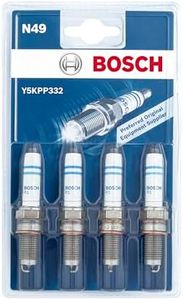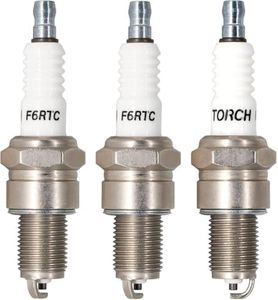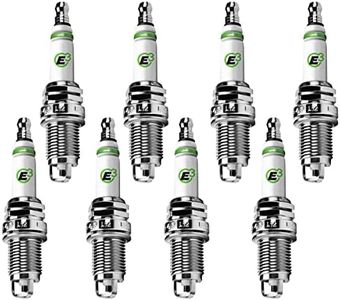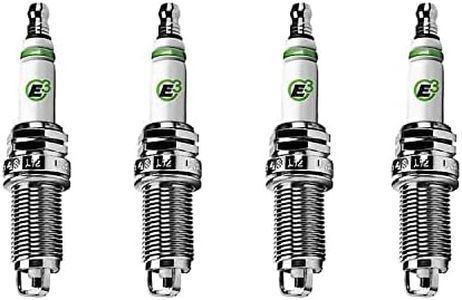We Use CookiesWe use cookies to enhance the security, performance,
functionality and for analytical and promotional activities. By continuing to browse this site you
are agreeing to our privacy policy
10 Best Spark Plugs
From leading brands and best sellers available on the web.By clicking on a link to a third party's website, log data is shared with that third party.
Buying Guide for the Best Spark Plugs
Choosing the right spark plugs is essential for keeping your vehicle’s engine running smoothly. Spark plugs are small but vital components that ignite the air-fuel mixture in your engine’s cylinders, helping start your vehicle and keep it running efficiently. The right choice can impact your engine’s performance, fuel efficiency, and even its lifespan. To make a smart decision, it’s important to understand a few key specifications and how they relate to your specific vehicle and driving needs.Spark Plug Type (Copper, Platinum, Iridium)The material of the spark plug’s tip affects its lifespan and performance. Copper plugs are the most common and offer good performance, but they usually have a shorter life. Platinum plugs last longer and often perform more consistently, while iridium plugs are the most durable and offer the best performance, especially in modern engines. If your vehicle is older or doesn’t have high performance demands, copper may be sufficient. For newer, more powerful, or more efficient engines, platinum or iridium plugs are recommended.
Heat RangeThe heat range refers to how quickly the spark plug can transfer heat from its tip into the engine’s cooling system. 'Hot' plugs retain more heat, while 'cold' plugs dissipate heat faster. Using the wrong heat range can cause engine knocking or deposit buildup. Most car manufacturers specify the right heat range for each engine, so always refer to your vehicle’s manual. If you drive in extreme conditions or frequently carry heavy loads, sometimes a slightly colder plug may be advised.
Size and Thread ReachSpark plugs come in different sizes and thread reaches, which refer to their diameter, length, and how deep they screw into the cylinder head. Using an incorrect size can lead to poor sealing, misfires, or even engine damage. Always verify the exact specifications required for your engine to ensure proper installation and performance. This information is usually listed in your owner’s manual or stamped on the old plugs.
Gap SizeThe gap is the distance between the center and ground electrodes where the spark forms. A correct gap ensures reliable ignition and optimal performance. Too small or too large a gap can cause starting problems or misfires. Many spark plugs come pre-gapped for general use, but for best results, check your vehicle manufacturer's spec and adjust the gap with a simple tool if needed, especially if you notice performance changes.
Resistor vs. Non-ResistorResistor spark plugs help reduce electromagnetic interference that can affect your car’s electronics, radios, and sensors. Most modern vehicles require resistor plugs. Non-resistor plugs are mainly used in older vehicles or some small engines that don’t have sensitive electronics. If you’re unsure or have a newer vehicle, always opt for resistor-type plugs.
